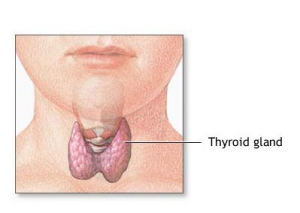The thyroid gland is the organ in the body that contains the most selenium per gram of tissue [Wang 2023].

In a 2023 review article, Wang et al summarize the reasons why adequate selenium intake and status are necessary for good thyroid health.
Humans cannot synthesize selenium: the daily intake of selenium depends on the contents of the individual’s diet.
- The selenium content of food depends on the selenium content of the soil, which varies extensively from region to region of the world. Much of Europe has selenium-poor soil; much of the United States has soil considerably richer in selenium.
- Selenium is a micronutrient that makes possible the body’s synthesis of some 25 identified selenoproteins containing the amino acid selenocysteine.
- The best known selenoproteins – such as the glutathione peroxidases, the thioredoxin reductases, and the iodothyronine deiodinases – are expressed in the thyroid gland, where they contribute to thyroid hormone metabolism and to antioxidant defense.
- A selenium deficiency will increase the risk of several kinds of thyroid diseases.
Selenium Supplementation and Thyroid Diseases
Wang et al [2023] report the following outcomes from clinical trials of selenium supplementation. They advise that we need more clinical evidence for the efficacy of selenium treatment of thyroid disorders.
- Selenium supplementation slows the progression of Graves’ orbitopathy and improves the quality of the patients’ lives.
- Selenium supplementation is associated with the decreased levels of anti-thyroid peroxidase antibodies and with improved thyroid ultrasound structure in patients with Hashimoto’s thyroiditis.
- Selenium supplementation has shown variable anticancer activity in patients with thyroid cancer.
Strong Association Between Selenium and Thyroid Disease
Selenium and Graves’ disease
Wang et al [2023] reviewed the data from 11 clinical trials. Nine clinical trials showed that selenium supplementation results in faster achievement of normal thyroid function in patients with hyperthyroidism. Two clinical trials did not show the beneficial effect of selenium supplementation. The difference in outcomes may be related to differences in the form of the selenium supplementation, the dose, the duration of supplementation, and the nutritional status of the study participants.

